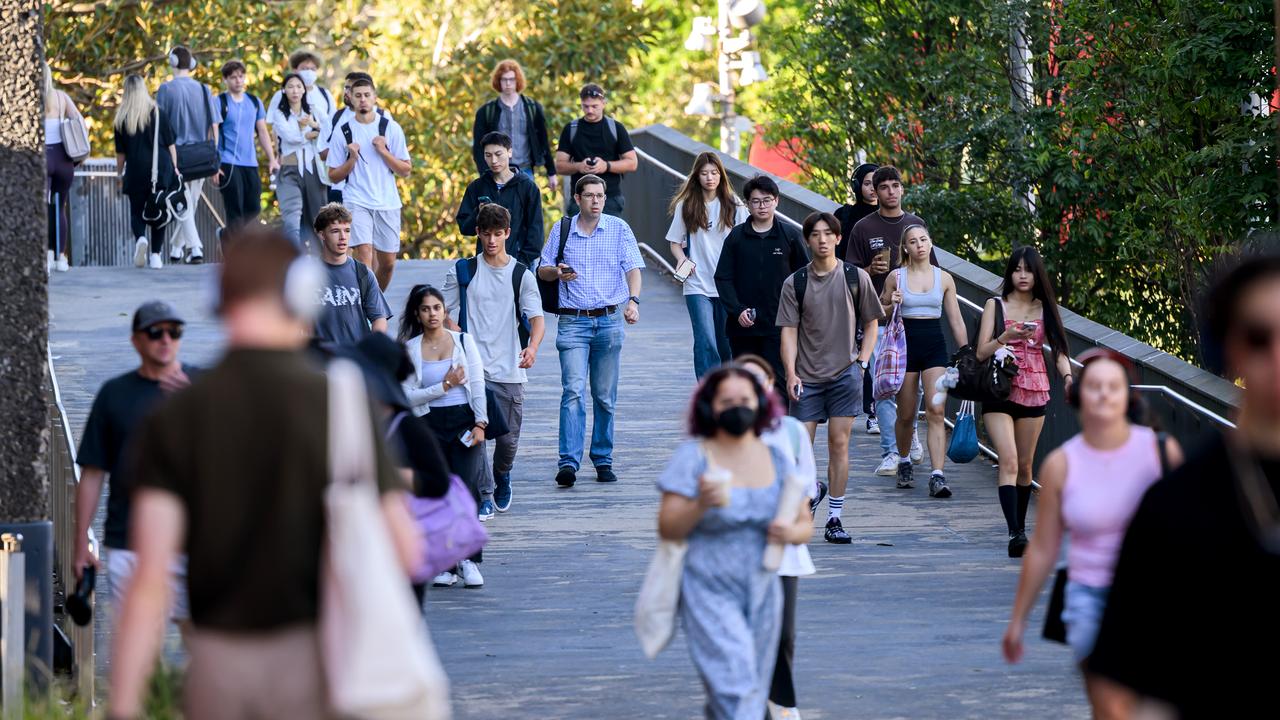
Universities are getting creative when it comes to engaging students on themes of gendered violence, respectful relationships and consent.
Soon, it will be required by law for all campuses and student accommodations to prevent and respond to gender-based violence under a national code.
The code follows the establishment of the National Student Ombudsman which opened its doors in February after a damning parliamentary report pilloried universities for how they handled sexual violence and harassment complaints.
More than 14,000 sexual assaults occur on Australian university campuses every year.

One in six university students has experienced sexual harassment on campus or in a university residency they call home.
Almost one in three university staff have reported personal experiences of sexual harassment.
Many universities have already taken action to address the issue.
The Royal Melbourne Institute of Technology (RMIT) has focused its efforts on masculinity and reaching young men.
Universities needed to be creative when it came to engaging students on topics of consent, respectful relationships and gendered violence, RMIT strategic manager Shelley Hewson-Munro said.
"The days of students hanging around on campus and wallowing in ideas just doesn't happen like it used to - they are coming to class and then leaving," she told AAP.
"So universities need to facilitate a genuine environment that encourages a chance to connect to someone, even briefly."

Ms Hewson-Munro said she and her team have had to think outside the box to engage students, with projects often involving snacks to encourage them to talk.
A "campfire" set up on campus - complete with a faux fire pit, yurt and hot chocolate making - inspired the Soy Boy comic.
The term "Soy Boy" is often used in the manosphere as an insult to belittle men who are seen as too emotional or progressive or do not conform to traditional masculine ideals.
"At the campfire engagement, young men were rejecting soy milk and having full cream, which sparked many conversations," she said.
"Some were really shocked that soy doesn't actually affect hormones and masculinity, despite what they'd seen online.
"In the manosphere, it is so hard to engage with credible sources ... we felt there was a responsibility for the universities to extend (students') minds on things they might have seen online."
Co-designed by students, the comic was produced to promote critical thinking in a social media age in which algorithms often promote disinformation.
The University of Technology Sydney (UTS) launched a campaign highlighting real experiences of gender-based violence on campus.
A long-standing Respect.Now.Always program has seen UTS take a whole-of-community approach focused on changing attitudes and behaviours around sexual violence and promoting a safe and respectful campus.
These examples showed many universities had been working in the violence prevention space, Our Watch chief executive Patty Kinnersly said, but the national code would help make that work more consistent and transparent.
"Big legislative things like this code are about saying this is not a choice anymore - you legally need to create a safe environment in universities and workplaces," she said.
"When this becomes law, it means people will need to be accountable and if progress is not right, there will be accountability for that."

Universities have welcomed the new code, but Universities Australia chair Carolyn Evans said the rules would be detailed, complex and expensive to implement.
"We want our universities to be much safer places than the rest of Australian society is for young women and for others who experience gender-based violence," Professor Evans told the National Press Club on Wednesday.
"We need to make sure all universities are good places for (people) where they get the right response and care."
Universities should have time to implement measures and see the results of action against gender-based violence, Prof Evans said.
1800 RESPECT (1800 737 732)
National Sexual Abuse and Redress Support Service 1800 211 028
Lifeline 13 11 14
Men's Referral Service 1300 766 491







